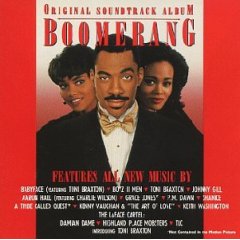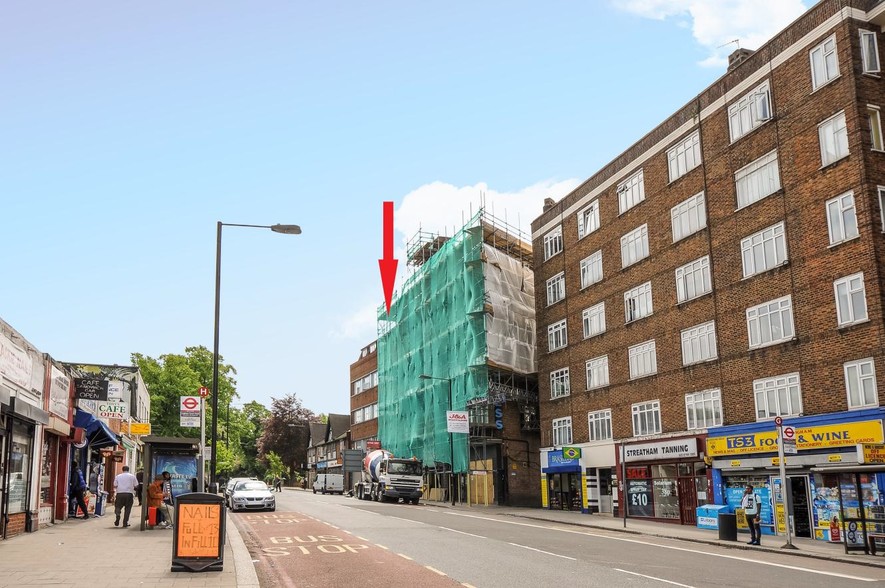














![World Of Twist – Sons Of The Stage – Vinyl (12", 45 RPM, Stereo), 1991 [r12690962] | Discogs](https://i.discogs.com/aMMBZ5t6MtC-C_6rauYUF3Uhjp_ofrV1LK18iqJD6O0/rs:fit/g:sm/q:40/h:300/w:300/czM6Ly9kaXNjb2dz/LWRhdGFiYXNlLWlt/YWdlcy9SLTEyNjkw/OTYyLTE1NDAxMjk3/ODctOTQxMC5qcGVn.jpeg)







#97: PRIMAL SCREAM
"Higher Than The Sun (American Spring Mix)"
from the 12-inch single "Higher Than The Sun"
Released: June 1991



#98: GORDON HASKELL
"How Wonderful You Are"
from the album Look Out
Released: June 2001
It was Friday 29 June 2001 when L.G. presented at our local GP surgery, just around the corner from where we lived. She had been suffering from breathing problems and coughs for some while. From the surgery she was admitted to the Radcliffe Infirmary for an emergency tracheotomy. Nobody could quite ascertain the cause of what seemed to be an obstruction in the larynx.
Weeks of investigations followed and it was finally established, as L.G. frantically and tearfully informed me on the telephone on the afternoon of Wednesday 18 July 2001, that she had cancer. A particularly rare and brutal subglottic squamous cell carcinoma, the type of malignancy which doesn't make itself visibly known until it's too late to do anything about it.
Nobody really knew what to do about L.G.'s cancer and I don't blame them for not knowing. It is one of the rarest cancers - truly the case of one in a million, unless the woman you love happens to be that one. To cut an otherwise pointless story short, she lasted - I hesitate to say "endured" - another five-and-a-half weeks until the cancer killed her at 11:30 pm on Saturday 25 August 2001, on the Intensive Care ward of a hospital which has since been demolished, its resources reallocated elsewhere.
I returned to work - at the time I couldn't really afford not to - in the manner of a dazed zombie. Life went on everywhere else but not in me. How could it? How could one properly grieve when surrounded by people protesting that your grief is spoiling their fun, getting in the way of their work?
It therefore follows that I had no reserve or capacity for shock or emotional engagement when 9/11 happened about two-and-a-half weeks later. It felt like a dream happening to somebody else. I was all out of grief, drained by pain.
Still less did I harbour any appetite for music. Music for a period became, to me, unlistenable. It reminded me of too much. I felt that I needed to venture beyond it - but to where? If you didn't see me stumbling around Oxford of a weekend between, say, September and November of 2001, then count yourself lucky. I very nearly didn't come back from that.
Then, very early one Sunday morning, exhausted and ready to follow Laura out of this world, I put on a record at very low volume (it being very early one Sunday morning) and its final, nearly fifteen-minute-long song felt, even at that dim distance, that it was speaking to me, urging me to come back. It was "I Dream A Highway" by Gillian Welch from her third album Time (The Revelator), which had come out about six weeks before. I breathed. I came back. It was a fucking elongated struggle but I came back. To music and VERY eventually to all else. If that song could theoretically go on forever, so could I.
The day before 9/11, a song called "How Wonderful You Are" was brought to the attention of the BBC DJ Johnnie Walker. He was so taken by it that he played it on high rotation on his radio show, and it got one hell of a reaction, mainly from listeners who'd had enough of hell.
Its author, singer and guitarist was a fifty-five-year-old Dorsetian named Gordon Haskell whose name would at the time only really have been familiar to King Crimson fans - he cameoed on In The Wake Of Poseidon and appeared on some of Lizard. But Gordon had no illusions and stood for no bullshit, meaning that after the early seventies times became fairly tough for him, even though he continued to write, perform and occasionally record music.
Certainly by 2001 Gordon had lived enough to know that he was just going to do whatever he wanted, not what others second-guessed or ordered him to do. He'd put out an album in June of that year called Look Out and "How Wonderful You Are," done live in the studio with bass, brushes, saxophone, slightly treated guitar and a voice which sounded as though it had trod the seabeds underlying the canals of forever, was one of its songs.
But the song spoke to enough people that demand for it went through the ceiling, if not quite the roof. It didn't sound like anything else on the airwaves that autumn and that was its advantage. It seemed to reassure folk who were sorely in need of reassurance, that everything was still normal and was going to work out. Not the living hospital nightmare of me coming off the Oxford Tube at Gloucester Green Bus Station one late Saturday night, hearing the thud of DJ Otzi's "Hey Baby" coming from the nearby pub and wondering whether this world had anything to do with me any more.
Which is odd because "How Wonderful You Are" is not a reassuring song. It begins immediately - no prelude, no intro of any kind, predicating the instant-fix formula of most of today's hits - and to what end? He goes out most nights (why? Isn't there a "home" as such of which to speak?), attracted by the lights. He goes to a pub to hear jazz and this pub may be busier than or equally as deserted as the one in Deptford that Mark Knopfler visited for "Sultans Of Swing"; the trad purists blowing (both music and blowing away the cares of their day jobs) onstage, the glam-rock leftovers in the bar sneering at them.
As with "My Sentimental Friend" by Herman's Hermits (although writer John Carter's demo cuts more cleanly to that song's emotional nub), Gordon is waiting for a song to come on and spark off - well, something in it that may well be love, or the suggestion of his potential for love. He is a sentimental fool but possibly also a creep ("Makes me want to fool around"). He strides up to someone with his hat down low and issues the corniest of chat-up lines. He is almost certainly pissed, and maybe as desperate as the George Michael of "Fastlove," the young gun who didn't go for it and who is now middle-aged and wondering why his routine doesn't work any more, suspecting that the world has moved on and lefr him behind. Until you reach the point where he confesses "I miss my baby." This is a bereaved man drowning in poured grief.
But does Gordon's character even bother saying, or is capable of saying, these corny words? He admits to always having struggled with the art of conversation, and readily admits that others will regard the song which gives him the spark with blank indifference or befuddled contempt - he doesn't identify the song in question, but the implication has four walls, meaning that Gordon understands that not everybody is going to get how wonderful "How Wonderful You Are" is. This song's itchingly perfect grammar and Hazlittian formality ("those for whom," "that it illustrates") indicate the portrait of an intelligent person who experiences regular difficulties transposing his inner articulation into outward communication. He's seen it all in "Harry's Bar" (presumably not the one in Venice); things happening fast, others built to last, and the two may be interchangeable.
Yet Gordon's man is confident that "this show will run and run" and that things have "only just begun" - Al Bowlly could have crooned these words seven decades earlier - although one is never sure how many times a week or night this happens. "How Wonderful You Are" examines a condition of emotional disrepair yet helped repair many emotions in late 2001 Britain. It made number two in the Christmas chart and so, the following month, did Harry's Bar, a compilation of songs from Look Out and its two predecessors. Since Haskell continued to refuse taking bullshit, however, such success never came his way again, but by the time he too died of cancer in October 2020, aged seventy-four, I'm certain he was securely glad about himself.
The song helped remind me that there still existed an outside world.

#49: DAPHNE GUINNESS “Revelations” from the album Revelations Released: August 2020 The Revelation of Jesus Bowie The ...
